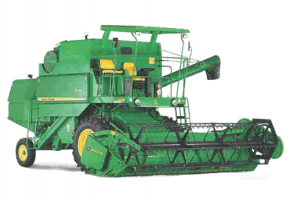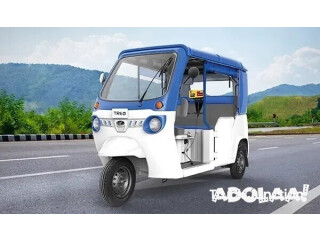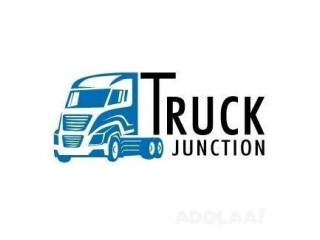The Modern Tractor Harvester: Revolutionizing Agriculture
Sep 6th, 2023 at 10:44 Commercial Vehicles & Spares Pune 145 views Reference: 8584Location: Pune
Price: Contact us
Introduction
In the realm of agriculture, the tractor harvester stands as a symbol of modernity and efficiency. These remarkable machines have transformed the way we cultivate and harvest crops, making farming more productive and sustainable than ever before. In this article, we will delve into the world of tractor harvesters, exploring their history, functions, and the impact they have had on agriculture.
The Evolution of Tractor Harvesters
The history of tractor harvesters can be traced back to the late 19th century when steam-powered tractors were first introduced. These early machines were rudimentary in design and could only perform basic tasks like plowing and threshing. However, they laid the foundation for the development of more advanced agricultural equipment.
It wasn't until the early 20th century that tractor harvesters, as we know them today, started to emerge. The integration of internal combustion engines and innovative designs led to the creation of powerful and versatile machines capable of performing a wide range of tasks. Over the years, tractor harvesters have continued to evolve, incorporating cutting-edge technologies such as GPS guidance, automated controls, and advanced sensors.
Functions of a Tractor Harvester
A tractor harvester is a multifunctional agricultural machine designed to perform several critical tasks during the farming cycle. Its primary functions include:
Planting: Tractor harvesters can be equipped with seeding attachments that enable precise planting of seeds in rows. This ensures optimal spacing and seed depth for uniform crop growth.
Cultivating: They can also be used for soil cultivation, breaking up clods and preparing the ground for planting. This process helps improve soil aeration and nutrient distribution.
Irrigation: Some tractor harvesters come with irrigation systems that efficiently deliver water to crops, ensuring they receive the right amount of moisture for healthy growth.
Crop Protection: Modern tractor harvesters are often equipped with sprayers for applying fertilizers, pesticides, and herbicides. These attachments help protect crops from pests and diseases while promoting healthy growth.
Harvesting: The most crucial function of a tractor harvester is, of course, crop harvesting. Whether it's grains, fruits, or vegetables, these machines can efficiently gather crops at the peak of their ripeness, minimizing losses and preserving crop quality.
Transport: Tractor harvesters are often fitted with trailers or bins for transporting harvested crops to storage facilities or processing centers. This streamlines the post-harvest logistics.
Impact on Agriculture
Tractor harvesters have had a profound impact on agriculture, revolutionizing the industry in numerous ways:
Increased Productivity: The mechanization of farming tasks has significantly increased productivity, allowing farmers to manage larger areas of land and produce more crops in less time.
Reduced Labor Requirements: Tractor harvesters have reduced the need for manual labor, making farming more accessible and less physically demanding.
Precision Agriculture: The integration of advanced technologies in tractor harvesters has led to the emergence of precision agriculture. Farmers can now make data-driven decisions to optimize crop yields, reduce resource wastage, and minimize environmental impact.
Sustainability: Tractor harvesters equipped with environmentally friendly practices such as no-till farming and reduced chemical usage have contributed to more sustainable farming practices.
Global Food Security: The increased efficiency and productivity of tractor harvesters play a crucial role in meeting the global demand for food and ensuring food security.
Conclusion
The tractor harvester is a testament to human ingenuity and innovation in the field of agriculture. These machines have not only transformed the way we grow and harvest crops but have also contributed to the sustainability and productivity of the agricultural sector. As technology continues to advance, we can expect further developments in tractor harvester design, further enhancing their efficiency and environmental friendliness in the years to come.














